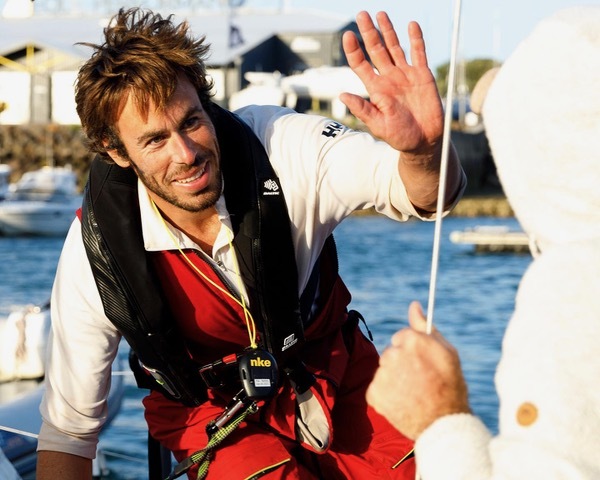
My Tech exposes the tech in jobs where there seemingly is none. How do technological advances make headway in the most improbable professions? We meet the individuals fusing technology and tradition in their day-to-day jobs and glimpse into their tech-infused reality.
#1: Felix Oberle, professional sailor and mechanical engineer
Tell us a few words about you and your job.
Well, I'm Felix, and I grew up in Aarau. I've been sailing since I was a kid. I went on to study mechanical engineering at EPFL, but sailing is the passion that has followed me my whole life. My technical passion turned out to be data analysis of athletes' performance, and I performed data analysis for the Swiss ski team. Being an engineer for professional sports teams gave me the urge to do a project for myself, and I started to sail full-time. I'm hooked for now.
What's your favorite technology? How does it work?
Sailing is a very technical sport, in all its facets. What fascinates me the most is optimizing the best route, taking in account the specifics of the boat and the weather conditions. We use something called a weather router. It's quite a sophisticated piece of software. First of all, you enter meteorological forecasts such as wind, wave size, etc. Which, of course, is just a prediction and does not necessarily reflect reality. You also need to know the boat and how it responds to wind and wave conditions. As a third factor, the software takes coastlines into account and avoids them. Finally, you enter the sweep angle. The algorithm then takes all this information into account and calculates the possible positions every hour, using a system of mesh networks and interpolation. And after all these steps, the algorithm calculates the best route. What I find interesting about this technology is its dependence on our human sensations and the adaptation to reality in terms of weather forecasts.
How has this technology transformed your job?
Looking at the history of sailing, everything has changed! In the early days of navigation, they used sextants and knew how to position themselves in relation to the sun. Today, we have satellite telephones which provide us with this information. Back in the day, boats endured the elements. They knew more or less how to avoid dangerous seas, but apart from observing clouds and barometer pressure, they didn't have much forecasting information. Today, routing has greatly changed sailing performance, since we’re able to position ourselves and adjust our route every day. Also, even though it's a performance tool, it is also a safety tool. Route optimization helps you avoid dangerous zones and recognize them ahead of time. The sailors are still the same, but today’s tools help push new records, and sailing as a sport has changed.
What has been your biggest tech mishap?
With this advanced technology, we risk forgetting that sailing route optimisation is just a model. Reality isn’t a model. Putting too much faith in technology once made me miss a good part of the race. The forecast gave me a very clear line to follow, and I didn’t “manually” calculate what was really happening on the water. As a result, I fell into a trap: there was no wind! Otherwise, a major concern for technology on my boat is the corrosion of electronics. I've had quite a lot of corrosion. Technology and the sea don't really like each other.
What are tech fears that keep you up at night?
I'm a pacifist, and I can't understand people who invest their energy in technology that is designed to kill other people. Technology isn’t really the problem. I find technology interesting, it has a lot of potential…it can help us. But unfortunately, in our society, people who help us kill others are the ones who get paid the most. And given what humans are developing, and the speed at which we're progressing, the development of weapons and potentially harmful technologies follows the same trend, and that worries me.
I'd like to invent the following technology…
I'd love to find a technique which allows people to press a button to make them happy again and remember what's important in life. In any case, I'd like to invent a technology opposite of my answer to your previous question.
If you’d like to know more about Felix’s sailing project, visit his website www.felixoberle.com.
Die Beiträge auf dem Reatch-Blog geben die persönliche Meinung der Autor*innen wieder und entsprechen nicht zwingend derjenigen von Reatch oder seiner Mitglieder.



Comments (0)